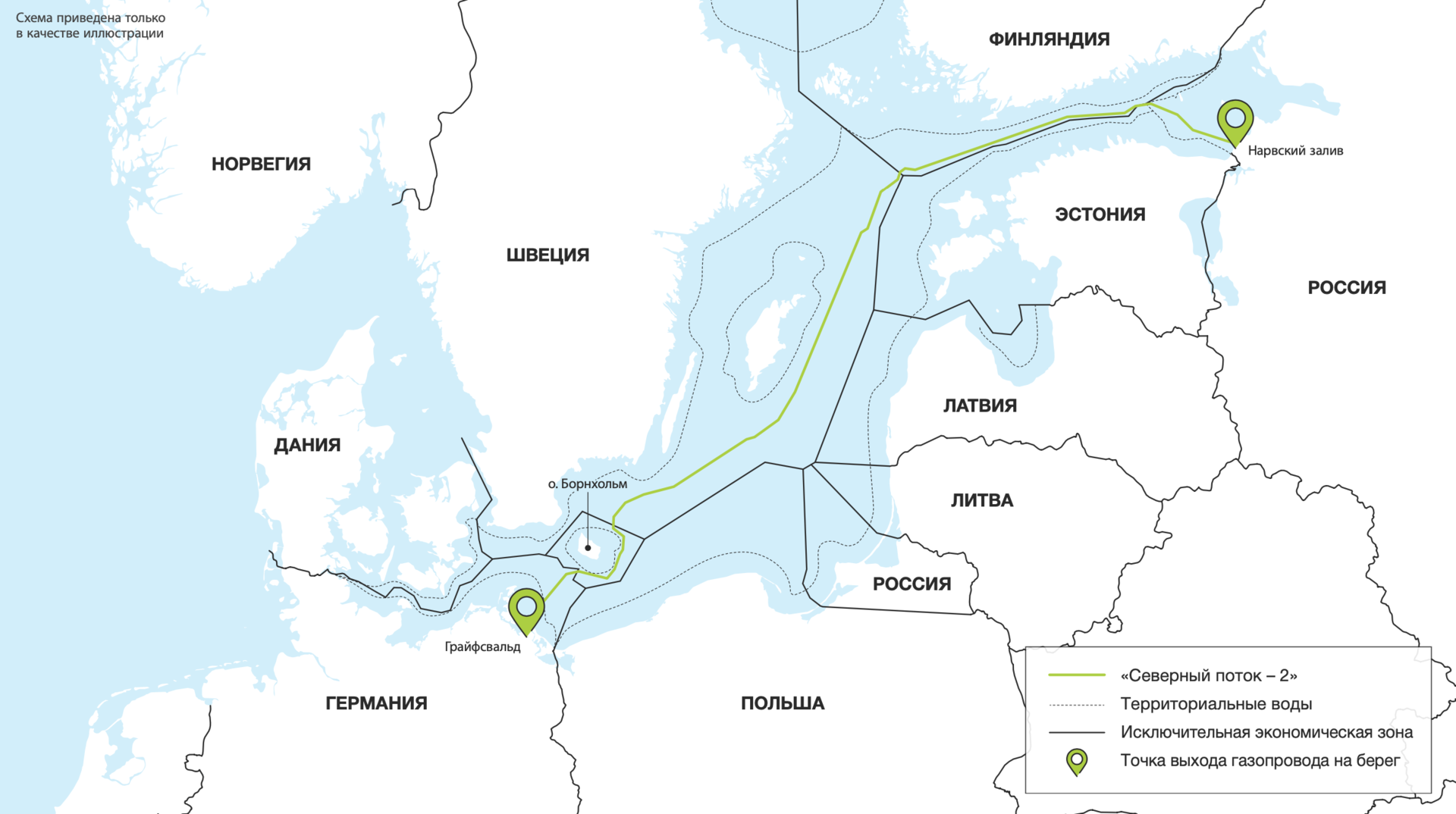The Nord Stream 2 gas pipeline will not be idle after completion of construction, since European countries and project partners are interested in pumping hydrocarbons through it.
This opinion was expressed on the air of the TV channel "Russia 1" by the Deputy Prime Minister of the Russian Federation Alexander Novak.
“I don’t think there are such risks, because ... our European partners are interested in this,” he answered the question whether there is a possibility that Moscow will not be able to pump gas through the new pipeline due to opposition to the “Northern stream - 2 ".
The Deputy Prime Minister recalled that this is a commercial project, which is being implemented primarily by foreign companies that are "interested in gas supplies from Russia."
“Gazprom has created a joint venture that has almost 95% of this project implemented,” Novak said.
He also expressed confidence that Nord Stream 2 will be completed, despite the destructive actions by the United States, which are delaying the construction of the gas pipeline.
“This project fully complies with European legislation.
There is simply such a competition on the part of American partners who want to supply their liquefied natural gas to Europe, that is, in fact, these are non-market methods of competition.
And if we talk about legislation, the legal side of the issue, this project is absolutely legal, meets all the requirements of European legislation.
Therefore, the countries that participate in it are interested in the implementation of this project, ”TASS quotes the Deputy Prime Minister.
The other day, the German edition of Der Spiegel, citing its sources, wrote that the work on laying the "Nord Stream - 2", which is being carried out in the waters of Denmark by the ship "Fortuna", interrupted due to bad weather, should resume next week.
It was noted that the Nord Stream 2 AG gas pipeline operator expects to complete construction by the end of 2021.
In turn, the Russian media reported that Gazprom also expects the Trans-Baltic project to start working by the end of the year.
Some Western politicians are still trying to hinder the construction of the gas pipeline.
So, on February 12, Republican Senator Jim Risch and his Democrat colleague Jean Shaheen sent a letter to US President Joe Biden in which they called for sanctions against the project.
“US relations with Germany are the cornerstone of the transatlantic alliance.
But allowing the completion of Nord Stream 2 is not a constructive step for this partnership, "Bloomberg quotes parliamentarians.
In turn, Polish Prime Minister Mateusz Morawiecki once again called for a halt to construction, stating that the project "increases the EU's dependence, strikes a blow to the economy and security" and could soon be used "in the interests of Russia's aggressive policy."
At the same time, high-level talks continue between Germany and the United States, during which Berlin is trying to persuade the American authorities to abandon the sanctions pressure on Nord Stream 2.
Probably, in this regard, the State Department took a pause, commenting on the construction progress in the following vein: we continue to monitor, but we consider sanctions as "one of the important tools."
German Federal Chancellor Angela Merkel and Austrian Prime Minister Sebastian Kurz have also consistently supported the completion of the construction.
So, after a meeting with French President Emmanuel Macron in early February, Merkel emphasized that she considers extraterritorial sanctions "not the best way" to resolve the situation.
And Kurz expressed confidence that the European countries would benefit much more from the commissioning of the new gas pipeline, and called the erroneous position that the project would meet Russia's interests.
Commenting on the project's prospects, Igor Yushkov, an expert at the Financial University under the Government of Russia, a leading analyst at the National Energy Security Fund, said in an interview with Moskovsky Komsomolets that European companies would not leave the project at the final stage, since too much money had already been invested in it.
“Washington is trying to reduce the investment attractiveness of JV-2, but European companies have already invested about € 5 billion in it, so they will not leave the project.
Problems can come precisely from the political structures of the Old World.
The last 12 km of pipes pass in the German water area and fall under the EU Gas Directive, which restricts the supply of "blue fuel" by one exporter along the same route, the expert explained.
- According to European laws, the Russian monopoly will be able to supply through the pipeline only 50% of its own fuel, and the other half must be given to competitors.
This problem is already being addressed.
An environmental fund has been created in Germany, which will be able to assign SP-2 the status of a climate-important project for Europe.
Such a fund will not impede American sanctions, but the EU will be able to save the pipeline from the Gas Directive. "

